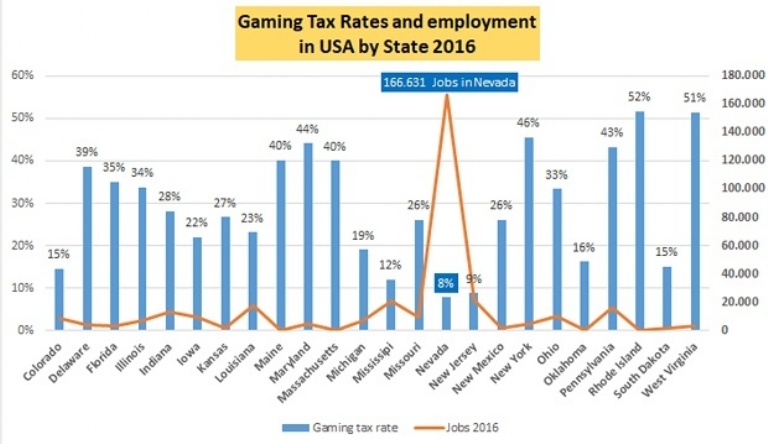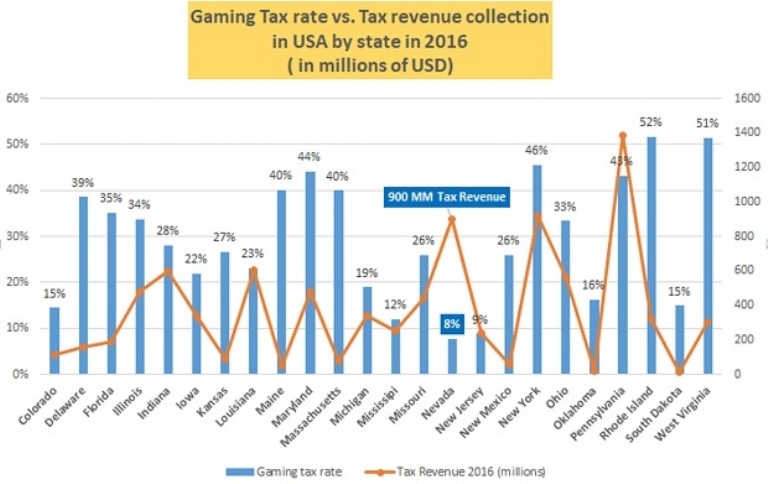

Recently, some Latin American countries raised gaming tax rates under the common argument of balancing public deficit. Argentina, Panamá and Uruguay there are the most recent examples.
For Panama, a 5% tax on player’s bet had catastrophic consequences not only for gaming but also for the hospitality industry with 25.000 dismissals.
In Argentina, the Government agreed to create a gambling tax to pay to finance budget deficit for the changes introduced in the Income Tax where less workers will pay taxes and more deductions will be accepted.
In Uruguay, the new tax applies a rate of 0.75% to the amount of the original bet for slots installed in casinos or entertainment halls. US$112 million per year are expected to be collected by the government.
Economic impact of gaming tax hikes for the operators in Latin America
According to companies involved in the industry, the tax rise would have direct incidence of in the profits in the income statement (between 30 and 50%). There is no future investment in sight if the lawmakers change the rules every four years. More layoffs are forseen if fiscal pressure increases in the near future.
Tax Rates and Job Creation
According to an AGA (American Gaming Association) report, “The best tax rate is not necessarily the one that generates the most tax revenue in the short term. Gaming is an industry. It keeps hundreds of thousands of Americans employed. Tax rates affect the industry’s ability to attract capital and the number of Jobs it provides (…) Lawmakers in every gaming state face a policy choice: maximum tax revenues today, or jobs tomorrow? High gaming tax rates, or a full employment economy? Tax revenues satisfy government’s immediate fiscal needs, and their importance is obvious. But there are economic needs as well, and gaming makes important contributions to the economy.”
Gaming Tax Rates and employment
In this sense I analyze the outcome on each state in USA taking in account two variables. Gaming Tax Rates and its effect over employment.

We see in the chart that Nevada has the lowest gaming tax rate and the largest employment number in gaming all the USA. According to Nevada Resort Association, the hotel-casino industry generates 337,700 employees.
Hotel-casinos make up 12 of the 20 largest employers in the state. When indirect and induced impacts are considered – derived from local supplier purchases and employee spending in other sectors of the local economy – Nevada's tourism industry supports an estimated 432,000 jobs.
Over a third of all funding for Nevada's public schools comes from the gaming industry.
Gaming Tax Rates and Tax revenue collections

As we see, in general the lowest gaming tax rates generates the highest Tax Revenue collection in states like Nevada. The higher the tax rate, the lower the tax revenue in general.
As properly stated on AGA White paper, “When they set tax rates, lawmakers effectively decide the kind of gaming facility that is built. High tax rates mean straight gaming without entertainment of other kinds. High tax rates discourage capital investment and job creation. High tax rates trade jobs for short-term government revenues.”
Brazil opportunity
An efficient tax administration can help encourage businesses to become formally registered and the economy to grow and thus expand the tax base and increase tax revenues.
Brazil has a great opportunity to learn best practices from other countries tax systems to become a model of regulatory framework overtime. Successful cases like Nevada in USA, shows us the way to a continuous growth with low gaming tax rates.
Investors are waiting for Brazil lawmakers to restore gaming from illegality for thousands of workers, and contributing to the long-awaited economic development of Brazil.
FEDERICO LANNES
Federico Lannes – Certified Public Accountant, Master in Business Administration at (INCAE/Harvard). Member of the Institute of Internal Auditors (IIA), Ex-CEO del Intercontinental Mendoza, General Manager at Salto Hotel and Casino (Uruguay), General Manager at Altos del Arapey Hotel (Uruguay). Casino Internal Audit Manager, casino credit managerand compliance Officer at Iguazu Grand Resort and Casino (Argentina), Business Consultant at hotels and casinos (in Paraguay). Consultant at Ernst&Young (Argentina). Mr Lannes has been a scholar of the organization of American states at INCAE MBA program in Costa Rica. He has written many articles in argentinian newspaper like infobae, Fortune Magazine, Empresa Magazine, Boletim de Novidades Lotéricas (Brazil), andGames Magazine Brazil. Speaker at Brazilian Gaming Congress, 2d and 3rd edition. Specialized in management, taxation, gaming compliance and hotel-casino openings. Ex- professor of finance at the university of Palermo in Buenos Aires.